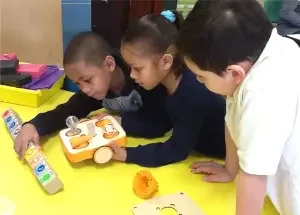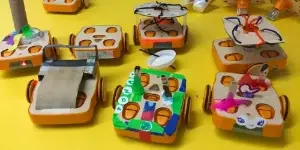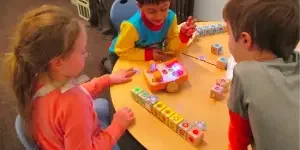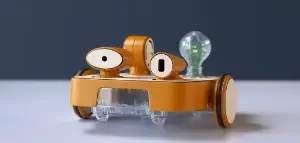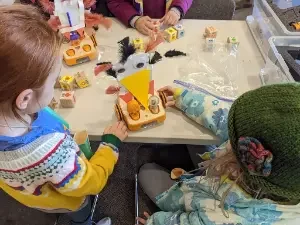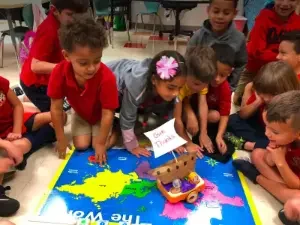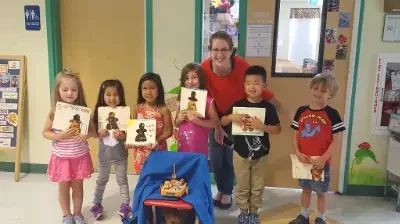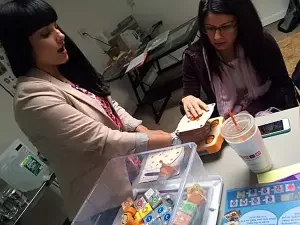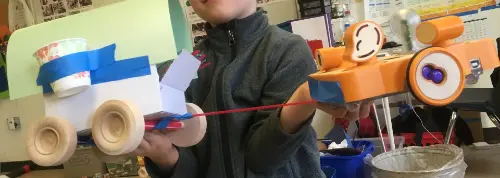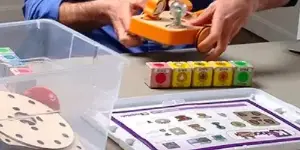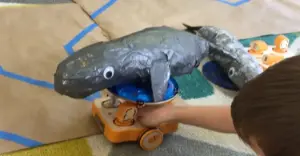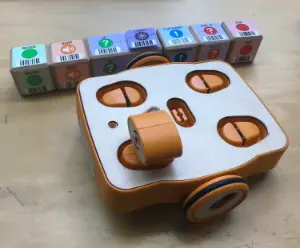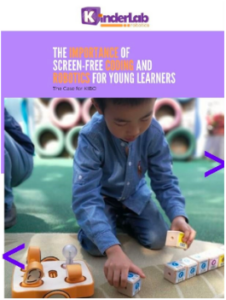Motherhood Moment: Enriching Education: KIBO Robot
The KIBO Robot Kit was the subject of a Motherhood Moment article. They had a chance to do an interview to learn more about KIBO and the importance of introducing coding and sequencing in early learning. The article reads in part:
What was the inspiration behind KIBO?
The KIBO robotics kit was developed through the Ready for Robotics project, led by Professor Marina Umaschi Bers from the DevTech Research Group at Tufts University and funded by the National Science Foundation (DRL-1118897).
As part of this project, Marina created and evaluated a developmentally appropriate robotic system for young children (ages 4-7), called KIBO, a robot that children assemble with motors, wheels, and sensors and then program with our tangible programming language made of wooden blocks.
KinderLab Robotics emerged from a need to make KIBO widely available from her research on new technologies for young children at Tufts University.
Why is it so important to encourage STEM in fun ways?
Research shows that young children can learn programming and engineering at a very early age. This is possible when children are given tools that are developmentally appropriate, that encourage open-ended play and that allow the integration of technical skills with expressive arts, math, literacy and cultural explorations.
Young kids learn by doing. They learn best by playing with physical objects: by making things, testing things. To learn programming and engineering, they need materials designed in the spirit of traditional learning manipulatives in early childhood (physical, as opposed to on-screen). Children engage in playful learning, cultivate their curiosity for the technological world, explore problem solving, and understand concepts such as sequencing, cause-and-effect, programming, sensors and motors.
How do open-ended toys increase skills?
Working with KIBO helps kids develop their critical thinking skills, helps them engage with technological tools in a creative way, and emphasizes collaboration through small group work. These are foundational skills that help kids in early childhood in every way, not just when learning coding and STEM. KIBO is also purposely gender neutral in its design in order to minimize the effect of childrens’ own internal stereotypes about technology-based toys. The attached slides elaborate on some of this.
What sets KIBO apart from other STEM toys?
The KIBO key differentiators are: KIBO is backed by almost two decades of Dr. Marina Bers’ research, KIBO is completely screen-free, and incorporates the importance of the arts (The “A” in STEAM) when learning about STEAM, coding and robotics.
See the full article.

